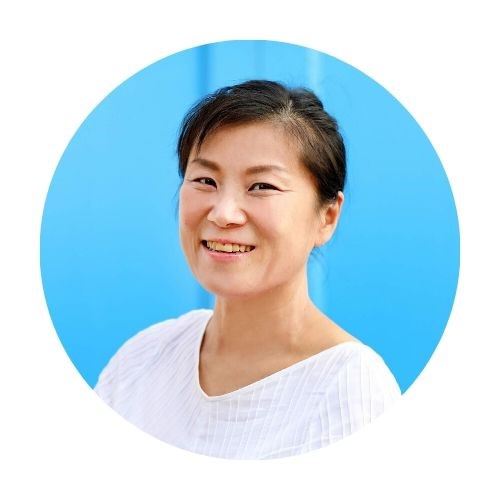FIGT member Ema Naito-Bhakdi shares how FIGT2022 helped her address the "shoulds" in her life and build new resilience and hope.
.png)
By Ema Naito-Bhakdi
If you ask me what caused me the most anxiety, the most worry these last two years, it was that my children couldn't go to school and have a "normal" middle childhood.
These were supposed to be some of the best years of childhood: Starting first grade and making friends, playing and learning together. Relaxing into fourth and fifth grades, knowing that middle school was still two years off. Graduating from elementary and entering the more grown-up world of middle school.
It was also supposed to be a stable period. Stability in childhood was something I dearly wanted to give our children because I myself treasured the five stable years I spent in one school in a childhood marked by moves between Japan and the US.
Those five years in my small Japanese school were magic. There, I could play and argue and study with the same kids and became one of the older-timers. The security of those five years gave me the strength to keep going through my bewildering teens. And so I wanted that stability for my children.
But instead, my children had to move countries twice within a year, be out of school for a term, enroll in school only to have it go online (seven months at the longest stretch and then sporadically for a day here, a week there), lose friends who moved because of the pandemic, and live a full year in limbo until we decided where to settle.
And I was suffocating in all the "shoulds"—we should be seeing my ageing parents, the kids should be in school with their friends and not online, I should be helping my children more in their schooling, maybe I should be spending less time on my own work (the new solopreneur work that I was loving)....
Ambiguous loss
Marilyn Gardner's Deep Dive at FIGT2022 gave me a name to all this: ambiguous loss.
Ambiguous loss, as Marilyn explained, is loss that doesn't come to closure. It could be when someone is physically present but psychologically absent, like in dementia. Or it could be a physical absence with an emotional presence, like when we miss our family and friends when we move or live across borders.
Listening to Marilyn, I extended the people in ambiguous loss to events. My "shoulds" were the emotional presence of the pieces of life as I envisioned it, in face of their absence.
Marilyn suggested five steps to healing:
-
Name the ambiguous loss
-
Use "both/and" thinking that lets you hold two opposing thoughts at the same time
-
Find meaning in the present
-
Reconstruct identity
-
Build resilience & discover new hope
Where am I?
So here's where I am:
Step 1: I've named my ambiguous loss (see above!).
Step 2: Both/and thinking: I hate that the kids aren't in school but I also enjoying spending more time with them. I hate that I can't give my full attention to their online schooling needs but I love that I have my own work. As a queen of positive thinking, it's usually harder for me to accept that things aren't all great. I'm telling myself that it's ok to have these opposite feelings.
Step 4: I can begin to reconstruct my identity by reconstructing what I see as being "a good parent."
I'm stuck, though, with step 3, "finding meaning in the present." That means working the present into my personal and family narrative. But what if I don't know what those narratives are?
Where do I go from here?
FIGT2022 asked us, where do we go from here?
My logical brain accepts that even these ambiguous losses of the pandemic years could become part of a personal and family narrative. Maybe it's a narrative of overcoming adversity. And that kind of story, like our favorite fairy tales, gives us the security of being in a familiar and comfortable bigger story.
So while my emotional brain doesn't quite follow all this and I don't know how to start, I know I want to begin identifying the narratives of my life and of my family.
And I want to tell these stories to my children. Because maybe giving them that security, comfort and familiarity will give them the stability, the continuity that I so want for them.
Resources
Session: Marilyn Gardner, "A Global Pandemic and Ambiguous Loss" (Deep Dive)
For ideas to self-regulate and reflect, the ones I watched so far (more to watch!):
-
Shellee Burroughs, "Posting Daily Post Its" (Say It in 5)
-
Eleni Vardaki, "Self-Soothing Tapping Skills" (Deep Dive)

 Ema Naito is an English editor who is passionate about clear, plain language. A bilingual adult third culture kid, Ema grew up between Tokyo and the US East Coast. She's been living in Bangkok for 17+ years and is an FIGT volunteer. You can find her tips on clear and accessible writing at www.TheClarityEditor.com and very occasional musings on cross-cultural life at www.CrossCulturalFamily.com.
Ema Naito is an English editor who is passionate about clear, plain language. A bilingual adult third culture kid, Ema grew up between Tokyo and the US East Coast. She's been living in Bangkok for 17+ years and is an FIGT volunteer. You can find her tips on clear and accessible writing at www.TheClarityEditor.com and very occasional musings on cross-cultural life at www.CrossCulturalFamily.com.

